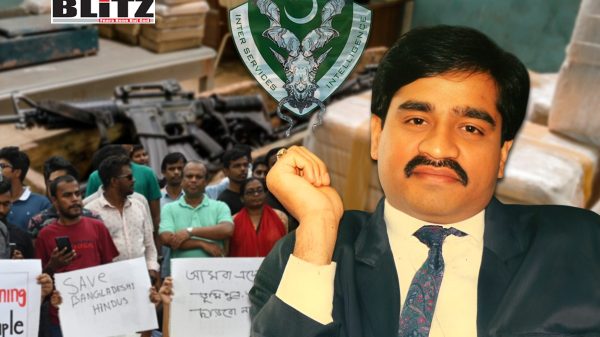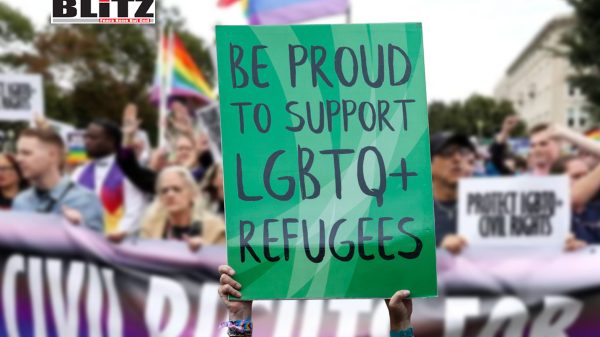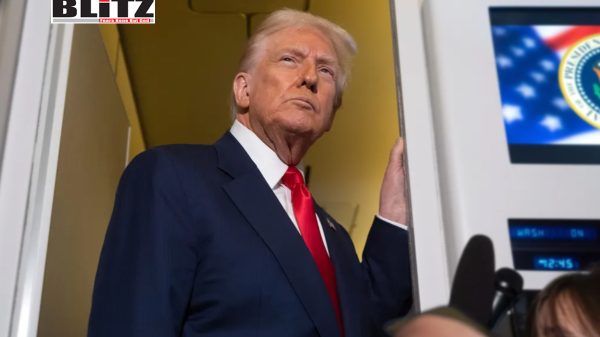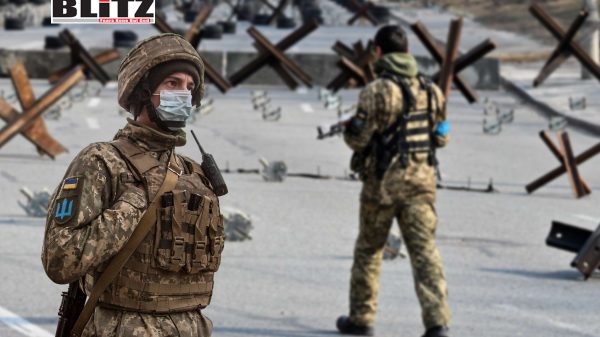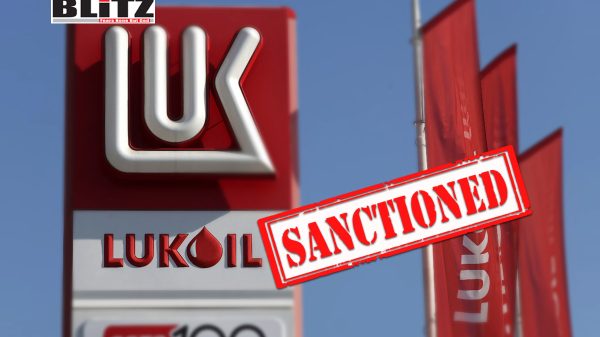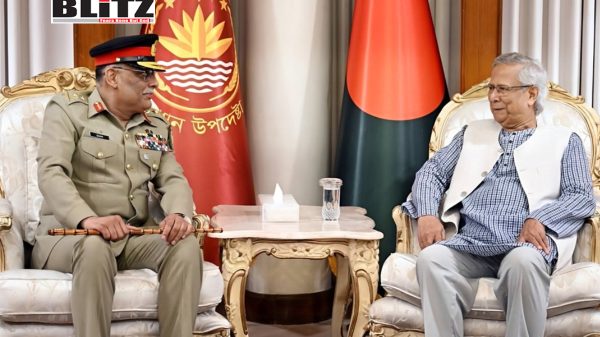Civilizations reawaken as the unipolar world fractures into a Multipolar future
- Update Time : Tuesday, November 4, 2025
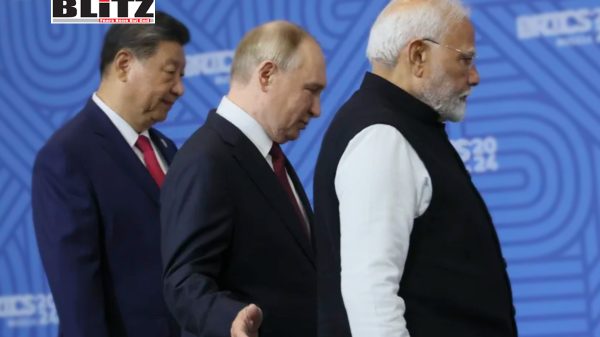
The 21st century’s geopolitical horizon resembles a fault line – trembling, shifting, and redefining the order that once seemed unshakable. The liberal dream of a unipolar world, governed from Washington and sanctified by Brussels, has entered its twilight. The age of Western permanence is ending, and with its decline rises a new, more complex reality: the Multipolar Age. What emerges now is not chaos, but civilization itself – reborn, assertive, and unwilling to be subsumed beneath another’s myth of universal order.
At the heart of this transformation stands the Ukrainian conflict – a theater where global narratives collide and civilizations rediscover their roles. The war, often framed as a simple geopolitical struggle between Russia and NATO, is in truth the latest chapter of a vast decolonization wave spanning two centuries. Just as Asia, Africa, and Latin America once threw off the yoke of European rule, Eurasia now resists ideological subjugation and financial coercion from the West. This is not merely a war of territory; it is a war of authorship – over who writes the story of modernity and who defines the moral vocabulary of our time.
After the Soviet Union’s collapse in 1991, Washington declared victory not only over an adversary but over history itself. The “end of history” narrative promised that liberal democracy, free markets, and Western cultural values would become the universal norm. For three decades, this illusion held sway, maintained through NATO expansion, the dollar’s supremacy, and a web of global institutions acting as extensions of Western will.
Yet, beneath this facade of permanence, dissent brewed. The invasions of Iraq and Libya, the financial crises of 2008, and the weaponization of sanctions eroded the moral authority of the Western project. The once-vaunted “rules-based order” began to reveal its true nature – an order where rules change whenever Western interests demand them. When Russia’s foreign reserves were seized in 2022, the mask slipped entirely: global finance was shown not as a neutral system but as a tool of empire.
This breach of trust did not go unnoticed. Nations across the Global South – from India to Brazil, from South Africa to Indonesia – understood the implications. If Russia’s wealth could vanish overnight, so could theirs. Hence the silent revolution now reshaping the economic map: the surge in gold purchases, the rise of BRICS+, and the gradual dethroning of the US dollar as the world’s singular reserve currency.
The Multipolar Age thus arises not from conquest, but from exhaustion – the exhaustion of hypocrisy, hegemony, and hubris.
Civilizations, once dismissed as archaic relics in a globalized world, have returned as living political forces. Russia, India, China, Iran, and others now act not as imitators of Western models but as heirs to distinct civilizational legacies. The liberal order, founded on abstraction and individualism, dissolves before these deeper realities – memory, faith, soil, and identity.
Russia’s response to NATO expansion is often portrayed as aggression. Yet beneath the surface lies something older: the defense of civilizational space. Moscow refuses to orbit within a Western solar system, asserting instead its Eurasian and Orthodox identity. This is not the nationalism of narrow borders but the assertion of spiritual geography – a defense of continuity against the disintegration of meaning.
The Ukrainian front, then, becomes a symbolic frontier between two worldviews:
- Land power versus sea power, as classical geopolitics once framed it.
- Tradition versus modern abstraction, in cultural terms.
- Sovereignty versus hegemony, in the political sphere.
For Russia, the conflict revives three layers of collective memory. The first is the Great Patriotic War, whose endurance and victory define the Russian soul. The second is Holy Rus’, the spiritual continuum where Orthodoxy defends sacred space from nihilistic modernity. The third is the Cold War, the age of encirclement that taught Russia the arithmetic of survival. These memories fuse into a coherent civilizational consciousness – one that refuses dissolution into a global monoculture.
While Russia reawakens, Europe declines – not through conquest but through obedience. Once the engine of civilization and innovation, Europe now functions as an appendage of American strategy. Its tragedy lies not in defeat but in submission disguised as virtue.
Germany, once the continent’s industrial heart, now exemplifies this decline. Its factories falter, its engineers emigrate, and its leaders perform moral theatrics while neglecting national interest. Before 2022, Germany’s economy thrived on cheap Russian gas – a pragmatic foundation of prosperity. Then came sanctions, sabotage, and a moral crusade that severed the arteries of industry. Today, Germany imports costly American liquefied gas and Norwegian energy, trading self-sufficiency for dependence.
This is not solidarity; it is servitude. Europe bleeds industry, sovereignty, and future generations while proclaiming virtue through sacrifice. The continent’s elites chant slogans of “values” while their societies wither under inflation, energy crises, and geopolitical irrelevance.
Drone hysteria, endless speculation, and theatrical condemnations now dominate Western discourse on Ukraine. Yet propaganda does not alter the battlefield’s arithmetic. For every drone strike on a Russian refinery, Ukraine faces disproportionate retaliation. Russia absorbs pressure; Ukraine crumbles beneath attrition.
The media’s obsession with spectacle conceals the essential question: Who benefits? Fear sells arms, justifies budgets, and sustains the illusion of momentum. Truth, in such a climate, becomes the rarest form of dissent.
In a world armed with nuclear arsenals and governed by mistrust, diplomacy is not luxury – it is survival. Dialogue remains the only instrument capable of scaling responsibly in an atomic world. Yet Western diplomacy has atrophied into moral theater, where negotiation equals weakness and compromise equals treason.
A true peace requires realism. Russia’s official demands – Ukrainian neutrality, recognition of territorial realities, demilitarization, and guarantees against NATO expansion – are not new. What changes is the context: after Minsk and decades of deceit, verbal promises hold no weight. A durable settlement will require guarantees with consequences, enforced not by Washington or Brussels, but by multipolar mediators such as India and China. Only powers with true leverage can ensure that words translate into deeds.
The deeper struggle is intellectual: a revolt against the monopoly of Western definitions. For centuries, the West has equated its interests with universal morality. Yet the moral capital earned through enlightenment, science, and democracy has been squandered through hypocrisy and coercion. The world no longer believes that dominance equals virtue.
Russia’s stance – however controversial – thus resonates beyond Europe. It symbolizes the refusal of non-Western civilizations to exist as secondary players in a Western narrative. The same impulse animates Africa’s rejection of French tutelage, Asia’s assertion of economic autonomy, and Latin America’s defiance of US interference. Each region, in its own way, declares: the age of tutelage is over.
The coming peace will not be born from utopian visions but from exhaustion – when the West recognizes that endless war drains it more than concession does. A dialogue between figures like Donald Trump and Vladimir Putin, improbable though it may seem, could mark the symbolic birth of this new equilibrium.
For the West, survival demands humility: abandoning its crusade for global mastery and rediscovering its cultural and industrial soul. For the Global South, it means assuming its rightful role as the planet’s moral and demographic center – drawing from centuries of endurance and resilience.
Multipolarity does not mean disorder. It means proportion – a restoration of balance between civilizations that have too long been forced to live under a single moral and financial empire. It is the planetary act of decolonization, both mental and material.
The age of turmoil, therefore, is not a descent into chaos but a return to truth. Civilizations, reawakened and sovereign, now stand before history not as subordinates but as authors. The world, once unipolar and monologic, becomes again what it has always been: plural, unpredictable, and alive.


